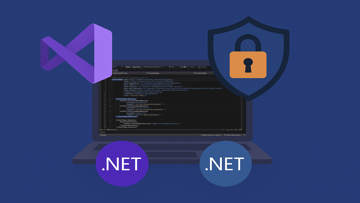OATH Toolkit
Simon Josefsson – Open SourceOATH Toolkit: A Powerful Library for OTP and TOTP Generation
OATH Toolkit is a robust and versatile library for implementing one-time passwords, supporting both OCRA and TOTP standards to enhance security in authentication mechanisms.
Introduction to OATH Toolkit
The OATH Toolkit, developed by Simon Josefsson, is a software tool aimed at providing functionality for generating and validating OTPs (One-Time Passwords) and other related authentication mechanisms. It operates under the principles of the OATH (Open Authentication) initiative, which promotes open standards for secure authentication.
Key Features of OATH Toolkit
- Support for TOTP and HOTP: The toolkit supports both Time-based One-Time Password (TOTP) and HMAC-Based One-Time Password (HOTP) algorithms, which are standards widely used for two-factor authentication.
- Simple Command Line Interface: OATH Toolkit is designed to be used through a command-line interface, making it accessible for both developers and system administrators who prefer a straightforward approach.
- Flexible Library Use: Users can integrate the toolkit into their applications through libraries available in different programming languages, enhancing its applicability across several platforms.
- Secure Storage of Keys: The toolkit includes options for secure key storage, ensuring that sensitive information like secrets remains protected during usage.
- Multi-Platform Support: OATH Toolkit is compatible with various operating systems, including Linux, Windows, and macOS, making it a versatile option for developers everywhere.
- Documentation and Community Support: Comprehensive documentation and community support are made available to assist users in deploying and troubleshooting the toolkit effectively.
User Interface and Experience
The OATH Toolkit is primarily non-GUI based, which means users interact with it via terminal commands. This could pose challenges for users who are accustomed to graphical interfaces; however, its command-line nature is favored by many developers due to the speed and precision it offers. Thus, the learning curve may vary among users depending on their technical expertise.
Installation Process
The installation process for OATH Toolkit is methodical. Users can download the source code from the official repository or install precompiled binaries from various package managers, depending on their OS. The step-by-step installation instructions provided in the documentation ensure that both novice and experienced users can set up the toolkit without difficulty.
Usage Scenarios
The OATH Toolkit can be utilized in various security scenarios:
- Web Applications: Ideal for integrating two-factor authentication into web applications to enhance security measures against unauthorized access.
- API Security: It can be used to protect API endpoints by ensuring that requests require valid one-time passwords generated by clients.
- Scripting and Automation: Administrators can automate tasks that involve OTP generation to improve workflows securely.
Security Considerations
User security is paramount when implementing any authentication mechanism. The OATH Toolkit adheres to industry standards recommended by OATH to ensure secure OTP generation. However, users must also safeguard their shared secrets and ensure that their systems stay updated against vulnerabilities. Regular audits and diligent monitoring of security practices are advised when using this tool in production environments.
Performance Metrics
The performance of OATH Toolkit can generally be regarded as efficient due to its lightweight design. The command execution time for generating OTPs or validating them typically occurs in milliseconds, even under load conditions. Users can expect consistent performance regardless of the number of simultaneous requests handled by their applications.
Integration with Other Tools
Easily integrates with various other security frameworks and systems; OATH Toolkit's ability to work with diverse programming languages means it can act as an effective security layer in existing infrastructures. Examples include deploying it alongside web servers or incorporating it into application back-ends seamlessly.
Community and Support
The community surrounding OATH Toolkit is relatively engaged, with resources such as forums, GitHub repositories, and mailing lists available for support. Users can report issues, seek help for implementation queries, or contribute improvements back to the toolkit's codebase. Moreover, comprehensive documentation adds significant value by offering examples, guides, and FAQs for common implementation challenges.
Conclusion
The OATH Toolkit by Simon Josefsson stands out as a competent tool for developers looking to implement two-factor authentication solutions efficiently. Its support for established standards like TOTP and HOTP combined with a versatile command-line interface allows it to cater to a wide variety of use cases while prioritizing security best practices. With continued community engagement and updates, OATH Toolkit remains a relevant choice in contemporary software development environments concerning user authentication needs.
Overview
OATH Toolkit is a Open Source software in the category Miscellaneous developed by Simon Josefsson.
The latest version of OATH Toolkit is currently unknown. It was initially added to our database on 12/29/2010.
OATH Toolkit runs on the following operating systems: Windows.
OATH Toolkit has not been rated by our users yet.
Pros
- Open-source and free to use, promoting accessibility and community collaboration.
- Provides a comprehensive set of tools for OTP (One-Time Password) generation and verification.
- Supports various algorithms including TOTP (Time-Based One-Time Password) and HOTP (HMAC-Based One-Time Password).
- Easy to integrate with existing systems due to its command-line interface and libraries.
- Well-documented, making it easier for developers to understand and implement.
- Regular updates and maintenance by the community.
Cons
- Requires some technical knowledge to set up and configure properly.
- Limited graphical user interface, which may be challenging for less tech-savvy users.
- Some users may find the command-line nature less intuitive compared to GUI-based alternatives.
- Relatively smaller community support compared to more popular authentication solutions.
- May lack certain advanced features offered by commercial counterparts.
FAQ
What is OATH Toolkit by Simon Josefsson?
OATH Toolkit is a software library for implementing one-time passwords.
What programming languages are supported in OATH Toolkit?
OATH Toolkit is written in C and supports bindings for other languages like Python.
What are some common use cases for OATH Toolkit?
OATH Toolkit can be used for implementing two-factor authentication, secure token generation, and more.
Is OATH Toolkit open source?
Yes, OATH Toolkit is released under the GNU General Public License (GPL) version 3 or later.
Is OATH Toolkit actively maintained?
Yes, OATH Toolkit is actively maintained by the developer Simon Josefsson.
Does OATH Toolkit support TOTP (Time-based One-Time Password) algorithm?
Yes, OATH Toolkit supports TOTP for generating time-based one-time passwords.
Can OATH Toolkit be used for hardware token integration?
OATH Toolkit can be integrated with hardware tokens that support the OATH standards.
How can I contribute to the development of OATH Toolkit?
You can contribute to OATH Toolkit on its official GitHub repository by creating issues or submitting pull requests.
Does OATH Toolkit provide documentation for usage and integration?
Yes, OATH Toolkit provides comprehensive documentation to help with usage and integration.
Is commercial use of OATH Toolkit allowed?
Yes, OATH Toolkit can be used for commercial purposes as long as it complies with the GPL license terms.
Peter Salakani
I'm Peter, a software reviews author at UpdateStar and content specialist with a keen focus on usability and performance. With a background in both software development and content creation, I bring a unique perspective to evaluating and discussing general software topics. When I'm not reviewing software, I enjoy staying updated on the latest tech trends, experimenting with new applications, and finding innovative solutions to everyday tech challenges.
Latest Reviews by Peter Salakani
Latest Updates
LastPass 4.141.0
Stay Secure with LastPass by LastPassAffinity Publisher 2.6.2.3228
Affinity Publisher: A Powerful Alternative to Traditional Desktop PublishingAffinity Designer 2.6.2.3228
Powerful Vector Graphic Design Software for ProfessionalsAffinity Photo 2.6.3
Revolutionize Your Photo Editing Workflow with Affinity Photo!Latest News
Latest Reviews
|
Fort Worth Garbage & Recycling
Efficient Waste Management App for Fort Worth Residents |
|
|
Fat No More: Personal Trainer
Fat No More: Personal Trainer - A Comprehensive Fitness Companion |
|
|
puhutv
PUHUTV by Dogus Digital: A New Era of Streaming Entertainment |
|
|
Amplosion: Redirect AMP Links
Amplosion: Simplifying AMP Link Management |
|
|
Construction Simulator 2
Construction Simulator 2: Building Your Virtual Empire |
|
|
Bride Race & Outfit Makeover
Bride Race & Outfit Makeover by Muhammad Imran: A Fashion-Forward Wedding Simulation |
|
UpdateStar Premium Edition
Keeping Your Software Updated Has Never Been Easier with UpdateStar Premium Edition! |
|
|
Microsoft Visual C++ 2015 Redistributable Package
Boost your system performance with Microsoft Visual C++ 2015 Redistributable Package! |
|
|
Microsoft Edge
A New Standard in Web Browsing |
|
|
Google Chrome
Fast and Versatile Web Browser |
|
|
Microsoft Visual C++ 2010 Redistributable
Essential Component for Running Visual C++ Applications |
|
|
Microsoft Update Health Tools
Microsoft Update Health Tools: Ensure Your System is Always Up-to-Date! |





